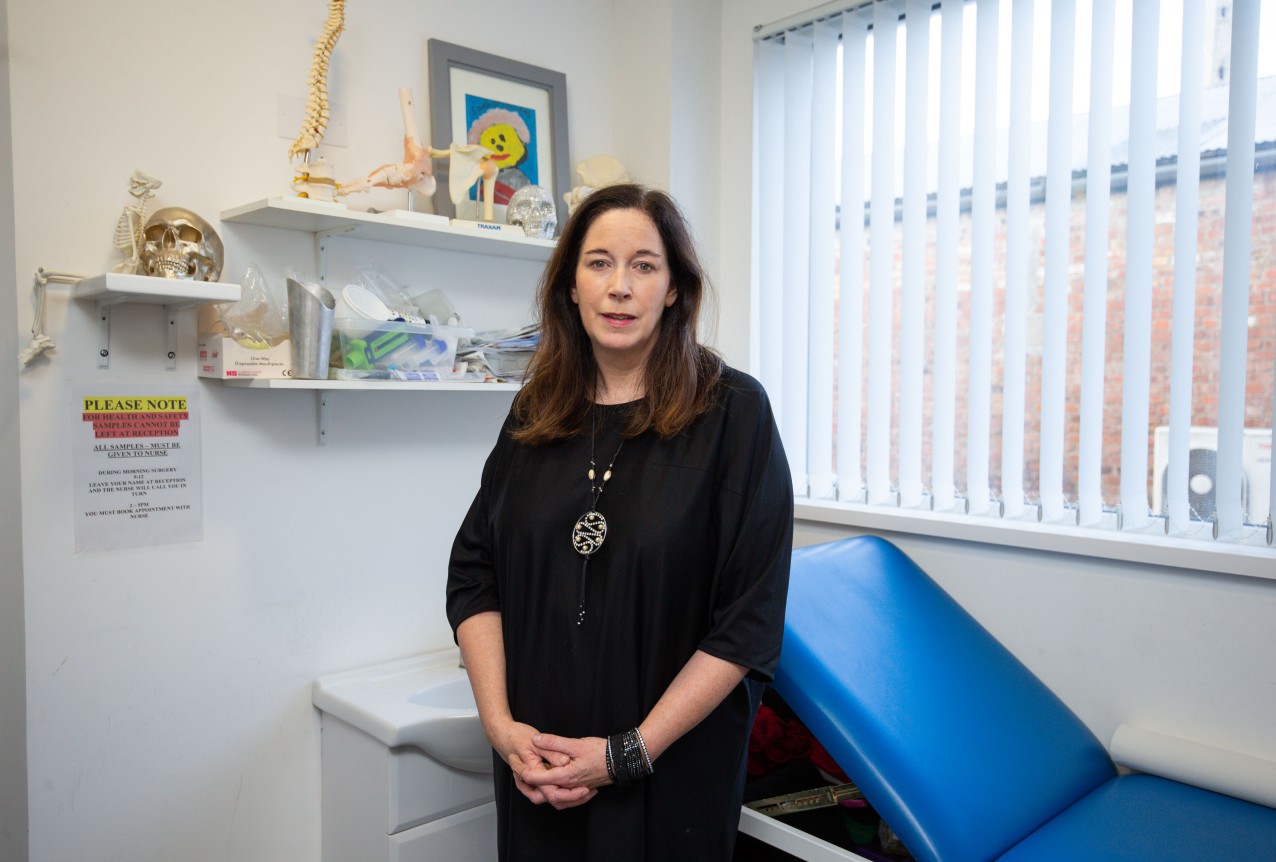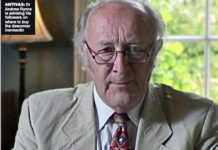By Michael O’Farrell – Investigations Editor
GP and out-of-hours practices are on the brink of collapse this winter as the health service struggles to deal with Covid-19, a doctor has warned.
Dr Illona Duffy has expressed grave concern about whether GPs will be able to cope under the wave of pressure after a week in which the collapse of the HSE’s contacttracing systems dominated headlines, and weaknesses in nursing-home protections were exposed.
These scandals have been compounded by the suspension of Covid testing at the National Virus Reference Lab this weekend due to staff shortages.
And while the HSE’s winter plan promises to support GPs – particularly the 40% of practices run by just one or two doctors – Dr Duffy said she has seen no evidence that improvements are being made.
The Monaghan GP said she is witnessing family doctors suffering burnout and said this will lead to more ill patients flocking to A&Es due to GP services forced out of action. This, she said, will have a detrimental knock-on effect on both hospitals and patients desperate to be treated.
Speaking to the Irish Mail on Sunday, Dr Duffy said: ‘We’re seeing an ever-increasing workload and we’re seeing a total abdication of responsibility and support by the HSE.’ When asked by the MoS about the potential collapse of the GP system, a HSE spokesman did not answer the question.
Dr Duffy’s comments follow similarly downbeat predictions by the main doctor organisations this week if there is continued underinvestment in our medical workforce.
Last night the Department of Health reported a further 859 cases of Covid-19 countrywide, bringing the total number of confirmed cases to date to 56,108 – with four more deaths bringing the virus death toll to 1,882 in the Republic. As of 2pm yesterday, 315 Covid-19 patients were in hospital, of which 37 were in an intensive care unit.
In the North, meanwhile, there were six further deaths and 923 new virus cases notified in the previous 24 hours.
This week the Irish Medical Organisation called on the Government to ‘urgently address Ireland’s crisis in medical workforce resourcing’, saying that ‘our health system will collapse leading to devastating implications for patients if more doctors are not recruited on a properly sustained basis’.
Speaking at the Oireachtas Joint Committee on Health on medical workforce planning on Wednesday, the IMO’s Professor Matthew Sadlier said that ‘despite recent widespread attention on the health system’s chronic shortage of doctors and the advent of Covid-19, the situation had deteriorated in the last year’.
Echoing these concerns in a statement this week, the Irish College of General Practitioners said: ‘There has been a significant increase in workload in GP surgeries this autumn compared to previous years, coming on the back of an exceptionally busy summer, due to Covid-19 test referrals and backlogs in appointments for non-Covid-19 illnesses.’
In the ICGP’s pre-Budget submission earlier this month, its president Dr Margaret O’Riordan referred to ‘huge pressures on existing practices’.
Citing a predicted shortage of more than 2,000 GPs by 2025, the submission said ‘grave manpower deficiencies prior to Covid-19 resulted in a significant number of patients having no GP.’
Its budget submission added that ‘many rural practices and innercity practices in deprived areas are being left unfilled due to the inability to recruit because of a general lack of incentives from the HSE’.
Dr Illona Duffy, who is part of a general practice in Monaghan town, is also the medical director of the North East Doctor Co-Op which provides out-of-hours GP care to Cavan, Monaghan, Meath and most of Louth.
Dr Duffy knows of two practices that were forced to close temporarily in recent weeks and says many more GPs – burned out from the first wave of Covid-19 – are close to being completely overwhelmed.
‘If there is a practice that has to close because the doctor is sick, there is nobody there to replace them. There are no locums available. We can’t find locums. It’s a big problem and the HSE are fully aware of it,’ she said.
The imminent prospect of overstretched GP practices collapsing during a second wave of Covid was acknowledged in the HSE’s new winter plan which promised supports to help a month ago.
A particular worry are single and two-doctor practices which make up 40% of all GP practices.
‘The surge in activity over the winter will bring particular pressure on single-handed, two-doctor practices and those practices of older GPs,’ the plan reads.
‘Failure of individual practices due to the illness of core personnel or an excess in demand over ability to deliver services will lead to knock-on impacts into emergency departments, the out-of-hours services and other stressed local practices,’ it continues.
‘To deal with such collapses the HSE plans to put Area Crisis Management Teams in place to provide staff, indemnity insurance and other supports when practices collapse,’ the plan promises.
‘These supports are essential to ensure that single-handed and two-doctor practices, which make up 15% and 24% of GPs respectively, do not experience practice failure and/or GP burnout,’ the plan explains.
But Dr Duffy, who was temporarily out of work herself with Covid during the first wave, said the HSE had so far failed to follow through on any promised plans. ‘One wonders what those plans are because I can tell you now the GPs haven’t heard of any plans,’ she said.
‘We have to see some action and if that’s already being discussed, why hasn’t that come into play for practices that are struggling and practices that have had to close for days while they wait for staff to be tested?’ she asked.
In addition to some day-time GP practices collapsing, Dr Duffy predicts out-of-hours GP cover would founder entirely.
‘One part of the system I feel is really going to collapse this winter is the GP out-of-hours service. We just don’t have the money to pay GPs and we don’t have the GPs to do it because they are burned out from their day-time work. The people who man it are the same ones who run their practice during the day.’
As the medical director of an out of-hours service that covers a large part of the country, Dr Duffy is well placed to make this assessment. ‘Whatever about day-time practices, who’s going to man weekends, who’s going to man overnights?
What will happen is GPs won’t be available. The redeye shifts will become unmanned and people will have to go directly to hospitals which is not ideal for anybody – patients or hospitals.’
Dr Duffy said the workload of day-time and after-hours GP services had mushroomed because of the Covid crisis.
‘The real risk is burnout for all of these doctors. We’re part of the group that have worked throughout Covid. Many GPs got no holidays this summer. They worked nonstop,’ she explained.
‘Problems have built up and the hospital clinics haven’t reopened. The message has been, “don’t go to A&E” so lots of people who would have self-presented to A&E with problems are now coming to general practice.
‘Another problem is a declining GP population – top heavy with older doctors, many of whom are medically vulnerable to Covid themselves. We have a large cohort of older GPs who really shouldn’t be doing out of hours and shouldn’t be having regular face-to-face contact with patients.
‘We also know that lots of GPs have underlying medical conditions and are on medication that means their immunity is compromised and therefore probably shouldn’t be doing out of hours.’
Funding shortfalls and years of under-resourcing is also a recurring problem for the out-of-hours co-ops throughout the country.
All this boils down to a crisis that led Dr Duffy to describe Christmas as a ‘war zone’ for out-of-hours doctors in recent years – before Covid. ‘We’re really struggling to find enough GPs for the out of hours.
Also, the GPs doing it are just exhausted and the demand is everincreasing because we’re dealing with Covid stuff and we’re dealing with our normal practices,’ she said.
‘We need more GPs if we’re to be able to protect our hospital services, our A&E departments and our emergency ambulance services.
‘We’ve got to have more GPs and the only way to do that is by offering to pay more GPs and look for those doing part time to be incentivised to do more. That’s not being done and it’s going to be another reason why our services will collapse.’
Speaking about the HSE having to get those who were given positive Covid results last weekend to do their own contract tracing, Dr Duffy added: ‘The public message that went out on that was so poor.
‘Officially they were meant to wait for the call from the person who had tested positive and then ring the GP if they were informed of that,’ she said.
‘But obviously people didn’t wait and the rang their GP. The problem was we weren’t so sure what we were meant to be doing either.
Dr Duffy also criticised the HSE’s failure to improve its Covid measures during the summer. ‘It wasn’t good enough. Why was this not prepared for? They knew this was going to be coming. Everybody knew that we’d see another surge. And the surge was a bit later than expected so they had even more time to prepare for this.’




